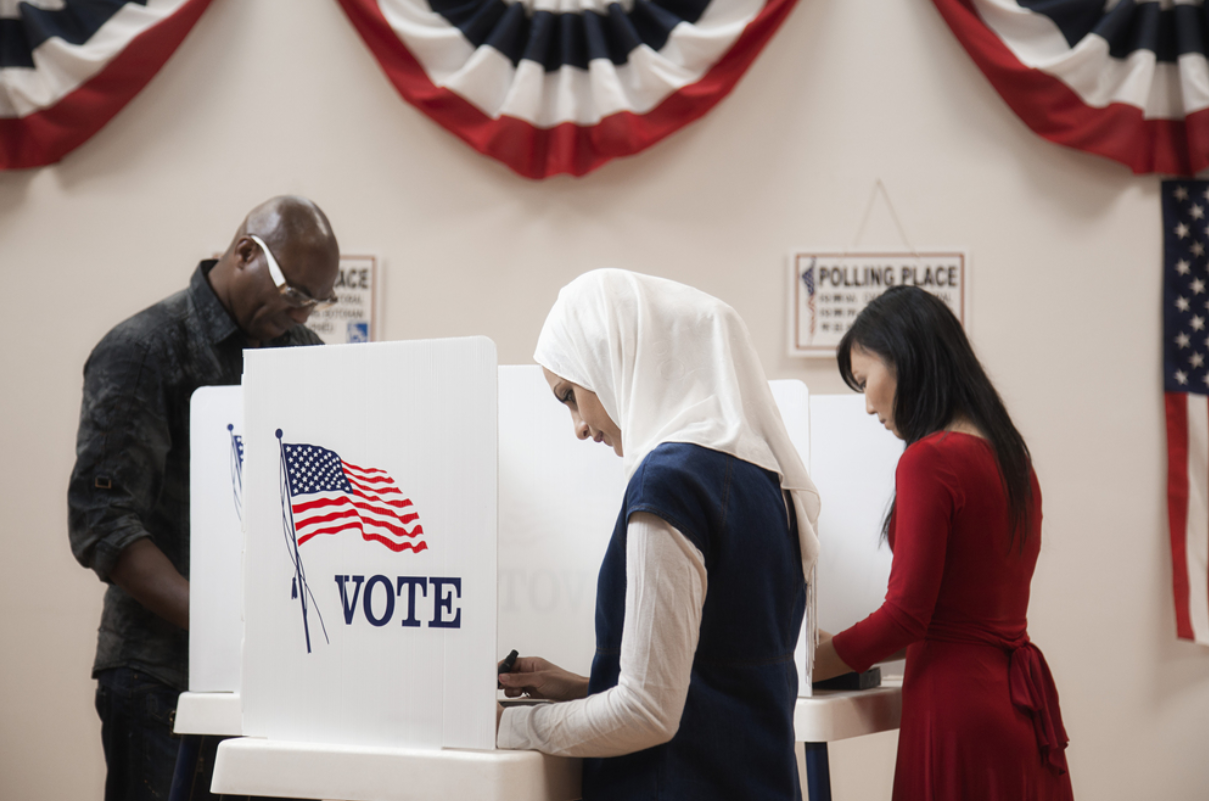Ensuring Fair Elections During Public Health Emergencies

Image Credit: BlendImages
(Voting Booth)States are racing to postpone Presidential primary elections and make other last-minute changes to slow the spread of the coronavirus virus. However, sudden changes in election dates, voting locations, and procedures creates confusion and barriers to the polls.
Nonprofits are needed now, more than ever, to ensure that the right to vote does not suffer under authorities’ efforts to protect public safety. Private foundations, public charities, and other tax-exempt entities can all engage in vital advocacy critical to our democracy. AFJ has the tools to help your organization understand the rules that govern your ability to undertake election protection efforts.
Engage in Emergency Planning
In the face of an escalating public health emergency, and at the time of this writing, Georgia, Louisiana, and Kentucky have postponed their presidential primary elections. At least four other states have closed, moved, or consolidated polling places and changed voting procedures as the New York Times reports, and more are certain to follow.
Understanding what your state can do in an emergency is a critical step to building your organization’s advocacy plan. The National Association of Secretaries of State has compiled a report on the states’ emergency planning for elections and the National Conference of State Legislatures (NCSL) provides statutory citations for each state.
Some states allow their governor, or other elected official, to declare an emergency and adopt policies to implement the election. In some states, the legislature can designate a contingency plan or method to allow those impacted by a disaster to vote in a non-traditional manner. And in most states, courts have been known to grant orders keeping the polls open, ordering ballots to be counted when a disaster prevented deadlines from being met, and requiring states to notify voters of changes in procedures.
For a 501(c)(3) private foundation or public charity, calling on the governor to exercise emergency rule-making authority or joining in a lawsuit to expand the franchise is permissible and not lobbying for IRS purposes.1
A coalition of over 100 nonprofits, including the NAACP Legal Defense and Education Fund, Alliance for Youth Action, EPIC, and Mi Familia Vota, has expressed concern over the decisions to postpone voting already underway in Georgia and Louisiana, while acknowledging that public safety is a top concern. Private foundations and public charities can sign-on to their letter or elevate their efforts to protect public safety and expand our franchise as this letter does not constitute lobbying for IRS purposes.
Support Legislative Efforts to Expand Alternative Options for Voting
In light of the public health emergency, NCSL is tracking pending state legislation and executive orders that would allow cancellation of an election, expand options for voting by mail, and allow single individuals to change the way elections are run. At the federal level, Congress is considering extra funding and a provision to allow Americans to vote by mail in the 2020 Election if 25% of the states declare an emergency.
Private foundations can legally express public support or opposition for legislation, while public foundations and charities can go one step further and engage in direct and grassroots lobbying to influence the passage or defeat of legislation.2 If you have questions about what activities are permissible, you can email advocacy@afj.org for assistance.
As nonprofits step up to encourage their communities to participate in Election 2020, engaging around emergency plans can be a powerful addition to the nonprofit’s advocacy toolbox. For questions on permissible activities, nonprofits can access free resources through our Resource Library.
1. Some efforts to influence the governor’s rule-making authority might require that your organization register as a lobbyist in your state depending upon your state’s lobbying registration laws. But registering as a lobbyist is different than “lobbying” for IRS purposes.
2. Visit Bolder Advocacy to learn in which activities private foundations and public charities can safely participate. “Being a Player” explains the IRS rules for public charities, and one of our many resources for private foundations called “Private Foundations Can Advocate” explains how they, too, can engage with the public and policymakers on important issues of the day.